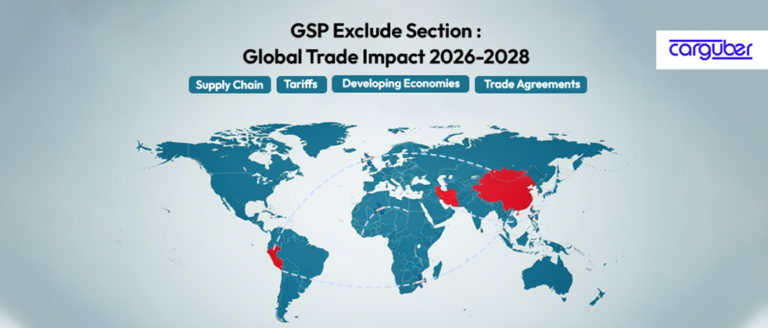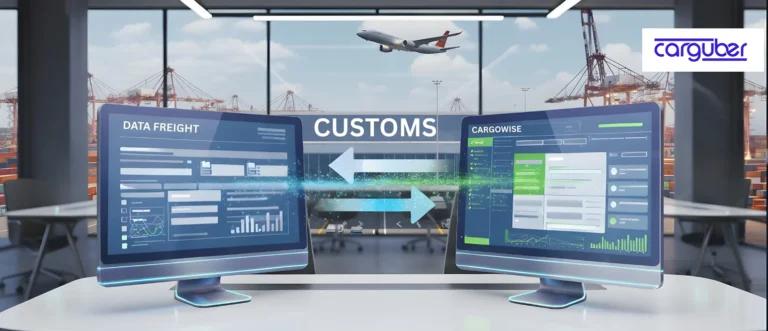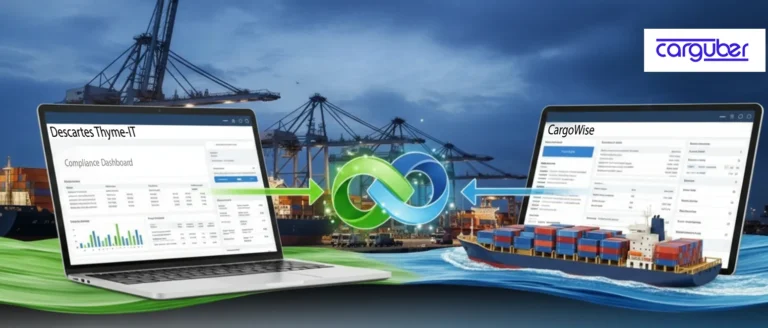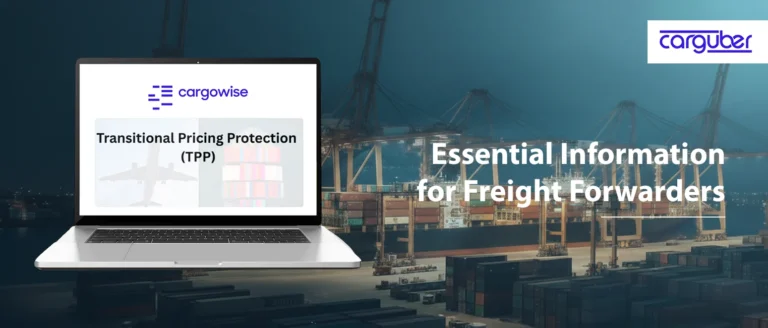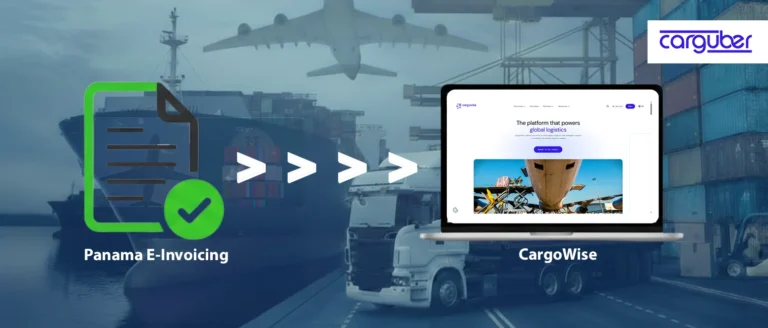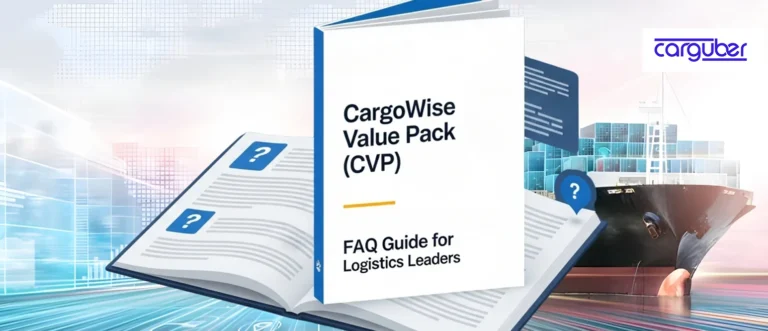What is the Booking Creation API and Why Should Logistics Teams Use it?
Every shipment begins with a booking. But for many freight forwarders and logistics companies, the booking process is still plagued by manual entry, endless emails, and time-consuming data re-entry between systems. If you’ve ever found yourself correcting booking dates in CargoWise or reconciling mismatched shipment details across your ERP, you already know the pain. The Booking Creation API offers a smarter alternative.
This API lets you create freight bookings automatically by pushing structured, real-time data into CargoWise or any integrated ERP. From shipment schedules and transport modes to origin/destination details and packaging metrics, the Booking Creation API simplifies everything, no spreadsheets, no back-and-forths.
Why Booking Accuracy is Critical in Logistics
Whether you’re coordinating sea freight from Shanghai to Sydney or managing last-minute air cargo from Hamburg to Rotterdam, the booking is your operational starting point. It sets the tone for scheduling, documentation, tracking, invoicing, and customer communication. When booking data is wrong or delayed, it disrupts downstream processes, creating a domino effect across departments.
The Booking Creation API gives you the power to ensure every new booking is accurately recorded, instantly processed, and fully synced with all your systems. This means fewer mistakes, less rework, and a much smoother workflow from pickup to delivery.
Key Data You Can Automate with the Booking Creation API
The real strength of this API lies in the depth of data it supports. You can automatically input everything you’d normally capture in a booking form and more. Here’s a breakdown of the core input fields:
- Booking Metadata: Automatically input the booking creation date (BookedDate), pickup window (StartDate), and estimated delivery window (EndDate). These fields help align your internal scheduling with carriers and clients.
- Shipment Mode Details: Specify transport mode (e.g., SEA, AIR), container mode (FCL, LSE), and INCOTerms like FOB or CIF. This ensures clarity between buyer and seller responsibilities and aligns with international freight standards.
- Routing and Locations: Define origin and destination cities (Shanghai to Sydney, for example), along with ports of loading (Load) and discharge (Discharge). This is critical for accurate route planning and port coordination.
- Carrier and ETAs: Include carrier codes, estimated pickup and delivery dates, as well as ETD (Estimated Time of Departure) and ETA (Estimated Time of Arrival) to enable real-time scheduling and milestone tracking.
- Dimensional and Freight Metrics: Push volume and weight measurements directly into the system with unit accuracy, essential for freight billing, warehouse planning, and customs declarations.
- Milestone Tracking: Add event codes (e.g., DEP for Departed) and timestamps (actual vs. estimated), so the booking is already linked to milestone visibility workflows.
- Organization and Address Data: Include structured pickup and delivery addresses, complete with contact details, nearest port codes, and country identifiers. This ensures that your shipment communication is always directed to the right party.
- Custom Fields: For businesses with specific reporting needs, the API supports user-defined fields (like DocumentCount or BookingPriority), so your system reflects exactly what matters to your operation.
How Teams Are Using This API in Real Operations
- Instant Booking Confirmation: Sales teams use the API to generate bookings in real-time as soon as the customer confirms the shipment. The moment the agreement is signed, the system pushes the full booking data, dates, volumes, and destinations, into CargoWise without any need for manual entry.
- E-commerce Fulfillment Planning: High-volume B2C logistics companies use the API to auto-create bookings based on order data, eliminating delays between sales and dispatch teams.
- Forwarding Process Automation: Freight forwarders with carrier integrations use the API to auto-create bookings once space is confirmed. This reduces the time it takes to kick off a shipment and accelerates document generation.
- Real-Time Supply Chain Visibility: Integrating booking creation with real-time milestone tracking means teams always know when a shipment was created, where it’s headed, and when it’s supposed to land.
Why Automating Bookings Makes a Huge Difference
If you’ve ever spent hours entering booking details or fixing mistakes due to manual handovers, you’ll immediately understand the value of automating this process. Here’s how the API improves operations:
- Accuracy at Scale: Prevent typos and mismatched records across transport modes, booking dates, and freight units.
- Faster Turnaround: No more waiting for someone to key in booking details. Once the data is confirmed upstream, it’s processed instantly.
- Better Visibility: Real-time data pushes ensure all stakeholders, from warehouse to customs, have consistent booking details to work from.
- Reduced Operational Overhead: Free up your operations and documentation teams from repetitive data entry so they can focus on high-impact tasks like exception management and customer service.
- Data-Driven Decisions: Accurate booking data fuels better analytics, KPI reporting, and forecasting. You can start measuring carrier performance, route efficiency, and booking-to-actual timelines with clarity.
Conclusion
Logistics is built on timing, and bookings are the starting point. With the Booking Creation API, you gain full control over how, when, and where your freight movements are initiated. From accurate milestone setting to reliable transport planning, this tool empowers logistics teams to move faster, cut down on errors, and stay in sync with partners and clients.
If you’re tired of the back-and-forth and ready to automate your booking workflows in CargoWise or another ERP system, now’s the time to act.
Let’s Make It Work for You, at Carguber, we specialize in building real-time integrations for logistics teams. Whether you’re just exploring the API or ready to implement it at scale, we’ll help you configure, test, and optimize your booking automation for better operational results.
Contact the logistics support and helpdesk today to learn how we can help you bring speed, accuracy, and automation to your booking processes, without the chaos.


